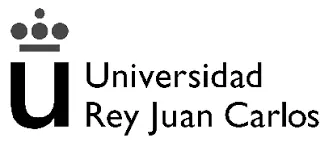NeuronUP Labs
List of research
with NeuronUP
At NeuronUP Labs we are interested in lines of research that increase technological innovation in NeuronUP, providing a solid foundation for scientific advancement in the field of cognitive stimulation and rehabilitation.
Published research articles
The NeuronUP platform, as a cognitive assessment and intervention tool, is part of various research projects.
Randomized controlled trials

Complutense University of Madrid
San Carlos Clinical Hospital, “San Carlos” Health Research Institute (IdISCC)
Randomized comparative feasibility study on neuromodulation and cognitive training for post-COVID fatigue
Silvia Oliver Mas, Jordi A. Matias Guiu, Cristina Delgado Alonso, Lidia Gil Martínez, Constanza Cuevas, Carmen Polidura, Lucía Fernández Romero, Andreu Matias Guiu
María Diez Cirarda
Fatigue and cognitive impairments are frequent and highly disabling symptoms in post-COVID syndrome. This randomized study compared the effect of transcranial direct current stimulation (tDCS) applied over the primary motor cortex together with cognitive training (M1 + CT) versus stimulation over the dorsolateral prefrontal cortex combined with the same training (DLPFC + CT). Sixty-three patients completed 15 treatment sessions, with neuropsychological and clinical assessments performed at baseline, post-intervention, and at one-month follow-up.
Results showed that the M1 + CT protocol offered a slight advantage in reducing fatigue and improving sleep, while both groups experienced significant improvements in cognition, anxiety, depression, pain, and sleep quality, which were maintained over time. Overall, these data support that the combination of tDCS and cognitive training is a safe and effective approach to reduce fatigue and improve cognitive function in patients with post-COVID condition, supporting the need for future controlled trials to confirm these findings.

Institute of Neurosciences
Transfer of an executive function intervention in children with cerebral palsy: a randomized controlled trial
Montse Blasco , María García Galant, Júlia Ballester Plané, Olga Laporta Hoyos, Xavier Caldú, David Leiva, Roslyn N Boyd, Els Ortibus
Roser Pueyo
This study analyzed whether a home-based computerized executive function training program could generate improvements in untrained functions —memory and visual perception—, as well as in the quality of life and participation of children with cerebral palsy. Sixty participants were randomly assigned to the program or a waiting list and assessed before, after, and nine months post-intervention.
After 12 weeks of training, the intervention group showed better results in immediate verbal memory, verbal learning, and visual recognition compared to the control group. No changes were observed in visual memory, visuospatial perception, quality of life, or participation. Furthermore, initial improvements were not maintained at nine months. Overall, the training showed immediate transfer effects in memory and visual perception, although without long-term maintenance
.

University of Santiago de Compostela
Transcranial alternating current stimulation and cognitive training improved performance and theta activity in adults with cognitive impairment
Susana Cid Fernández, Ana Nieto Vieites, Arturo X Pereiro
Fernando Díaz
Age-associated cognitive impairment continues to rise, and available pharmacological treatments are often ineffective and costly, prompting the search for alternatives such as theta-frequency transcranial alternating current stimulation (theta-tACS). Although this method has shown potential to improve cognition, its efficacy in people with cognitive impairment is still poorly understood.
In this study, 27 participants with subjective memory complaints, mild cognitive impairment, or dementia performed several sessions combining computerized cognitive training and real or sham theta-tACS. Cognitive tasks were assessed and EEG activity was recorded before and after the intervention.
Results showed improvements only in the group receiving real theta-tACS, with better performance on the oddball task and increased EEG activity in the theta band. These findings indicate that theta-tACS could improve cognitive functioning at behavioral and neurophysiological levels in people with cognitive impairment, supporting its potential as a non-pharmacological intervention.

Hospital del Mar Research Institute
Barcelonaβeta Brain Research Center
Carlos III Health Institute
A multimodal lifestyle intervention supplemented with epigallocatechin gallate to prevent cognitive decline in APOE-ɛ4 carriers with subjective cognitive decline: a randomized, double-blind clinical trial (PENSA study)
Laura Forcano, Natalia Soldevila Domenech, Anna Boronat, Gonzalo Sánchez Benavides, Albert Puig-Pijoan, Thais Lorenzo, Ana Aldea Perona, Marc Suárez Calvet, Aida Cuenca Royo, Juan Domingo Gispert, Maria Gomis Gonzalez, Carolina Minguillón, Patrícia Diaz-Pellicer, Karine Fauria, Iris Piera, Klaus Langohr, Mara Dierssen, Nieves Pizarro, Esther Mur Gimeno, Oriol Grau Rivera, José Luis Molinuevo
Rafael de la Torre
The role of certain dietary compounds as enhancers of lifestyle interventions in people at high risk of cognitive decline is still unclear. This study analyzed whether adding a green tea extract enriched with EGCG could increase the benefits of a 12-month multimodal intervention including dietary guidelines, guided physical activity, and cognitive stimulation in older adults with subjective memory complaints and APOE-ɛ4 carriers.
One hundred and twenty-nine participants were assigned to the EGCG intervention, placebo, or a non-randomized group with lifestyle recommendations. Although after one year no significant differences were found in the primary cognitive measure between the MLI+EGCG and MLI+placebo groups, those who received EGCG were more likely to show reliable cognitive improvements. Additionally, after the washout period, the EGCG group presented superior cognitive benefits.
Overall, results suggest that combining lifestyle interventions with EGCG could provide additional benefits, especially in the medium term, and deserves to be investigated in larger studies.

UNED, Open University of Catalonia and Francisco de Vitoria University, Spain
UNNE Institute of Neuroestimulation
Randomized, triple-blind, parallel-controlled trial of transcranial direct current stimulation for cognitive rehabilitation after stroke
Elena M. Marrón, Marcos Ríos Lago, Aida Arroyo Ferrer, Yeray González Zamorano, Francisco José Sánchez Cuesta, David De Noreña, Juan Pablo Romero
Begoña González Rodríguez
Stroke in the right hemisphere often causes unilateral spatial neglect, a sequela that notably hinders recovery and is associated with worse cognitive and motor outcomes. This proposal presents a combined protocol integrating transcranial direct current stimulation (tDCS) with a computerized neuropsychological rehabilitation program specifically designed for this deficit.
The neuromodulation approach uses cathodal tDCS over the left posterior parietal cortex to reduce hyperactivation of the healthy hemisphere, following the interhemispheric rivalry model. The intervention takes place over two weeks, with ten consecutive sessions in which high-definition tDCS and cognitive stimulation are applied simultaneously. Neuropsychological and functional assessments were performed before and after treatment, including a detailed description of a pilot case to evaluate protocol feasibility.
This parallel, triple-blind experimental design aims to lay the groundwork for studying the efficacy of integrating tDCS into post-stroke cognitive rehabilitation, with the potential to shorten recovery times and improve patients’ functioning and quality of life.

Autonomous University of Barcelona
Network Center for Biomedical Research in Neurodegenerative Diseases (CIBERNED)
Hospital de La Santa Creu I Sant Pau
Randomized clinical trial to evaluate the efficacy of cognitive rehabilitation and music therapy in mild cognitive impairment in Huntington’s disease
Andrea Moreu Valls, Arnau Puig Davi, Saul Martinez Horta, Gabriel Kulisevsky, Frederic Sampedro, Jesus Perez Perez, Andrea Horta Barba, Gonzalo Olmedo Saura, Javier Pagonabarraga
Jaime Kulisevsky
Evaluating the efficacy and safety of two cognitive rehabilitation strategies in people with Huntington’s disease in early and middle stages was the objective of this research. Non-pharmacological therapies, such as cognitive training or music therapy, are considered promising alternatives to maintain neural plasticity, improve cognitive performance, and foster emotional well-being.
It is demonstrated that both computerized cognitive training and music therapy produced significant improvements in global cognition and various clinical measures, surpassing the standard care group with no active intervention. Furthermore, variations in cognitive performance predicted the rate of atrophy in key structures affected by the disease. Functional connectivity analyses revealed differentiated effects depending on the intervention: cognitive training increased connectivity between executive and sensorimotor networks, while music therapy reduced anomalous patterns between the executive network and the default mode network. Overall, these results indicate that both strategies can improve cognitive function and modulate relevant brain changes in Huntington’s disease, supporting their value as complementary approaches in rehabilitation.

University of Burgos
Effectiveness of the NeuronUP program in improving cognitive performance in older adults.
Silvia Ubillos Landa, Elvira Isabel Mercado Val, Mario Del Líbano Mirallés, Montserrat Santamaría Vázquez
Olalla Saiz Vazquez
In recent years, digital technologies for cognitive stimulation have gained importance for their capacity to optimize resources and improve intervention in institutionalized older people. This study compared the use of the NeuronUP web platform with the traditional pencil-and-paper format to evaluate its impact on mild cognitive impairment. For this purpose, 110 participants were randomly assigned to one of the two methods and assessed before and after using the Abbreviated Barcelona Test. Statistical analyses showed that those who used NeuronUP obtained significant improvements in orientation, reading, and memory, while no changes were observed in language.
These results suggest that professional-guided digital interventions may be an effective alternative to enhance various cognitive functions in institutionalized older adults.

Universities of Almería, Valladolid, Alcalá and Jaen
Resistance training to reduce fall risk in people with Alzheimer’s disease: a randomized clinical trial
Rubén Cámara Calmaestra, Antonio Martínez-Amat, Agustín Aibar Almazán, Fidel Hita Contreras, Nerea de Miguel Hernando, José Daniel Jiménez García, Alexander Achalandabaso Ochoa
Daniel Rodríguez Almagro
This study analyzed the effect of resistance training in people with Alzheimer’s disease, evaluating its impact on fall risk, muscle strength, neuropsychiatric symptoms, fear of falling, and autonomy in activities of daily living. Sixty participants were randomly assigned to a resistance training program three times a week for 12 weeks, combined with cognitive stimulation, or to a control group that performed only cognitive training.
Results showed significant improvements in favor of the intervention group both at the end of the program and three months later, including a reduction in fall risk and fear of falling, greater muscle strength, and fewer neuropsychiatric symptoms, along with small improvements in activities of daily living.
These findings indicate that resistance training is an effective strategy to improve relevant physical and neuropsychological aspects in people with Alzheimer’s, with sustained benefits over time.

Sant Joan de Déu Research Institute
Autonomous University of Barcelona
Hospital de la Santa Creu i Sant Pau
Combination of mindfulness and cognitive training in children with attention deficit hyperactivity disorder: study protocol for a randomized and controlled pilot trial (NeuroMind study)
Tania Badia Aguarón, Estíbaliz Royuela Colomer, Vanessa Pera Guardiola, Pere Vergés Balasch, Ausiàs Cebolla, Juan V. Luciano, Joaquim Soler, Albert Feliu Soler
Anna Huguet Miguel
ADHD affects approximately 5% of the child population, and although cognitive training and mindfulness-based interventions have shown promising results, they are not yet part of standard treatment. The NeuroMind study will evaluate the efficacy and feasibility of the Mindfulness for Health program, cognitive training with NeuronUP, and their combination (MCT) as a complement to standard treatment in children with ADHD.
120 children aged 7 to 12 years will participate, randomly assigned to four experimental conditions. Assessments will be carried out before the intervention, at two months, and at five months, analyzing ADHD symptoms, executive functions, comorbidity, and global functioning using mixed statistical models and mediation analysis.
If the combined approach demonstrates positive results, it could serve as a basis for larger studies and for its future incorporation into clinical practice.

Rey Juan Carlos University
Rehabilitation program oriented to quality of life and cognition using NeuronUP in older people with Alzheimer’s disease: a randomized clinical trial.
Cristina García Bravo, Sara García Bravo, Isabel Quirosa Galán, Mª Pilar Rodríguez Pérez, Jorge Pérez Corrales, Gemma Fernández Gómez, Madeleine Donovan, Elisabet Huertas Hoyas
Anthia Cristina Fabara-Rodríguez
This study evaluated whether the integration of the NeuronUP platform into occupational therapy could improve cognitive status, perceptual skills, and quality of life in people with Alzheimer’s disease. In a randomized and single-blind clinical trial, participants were assigned to a control group that received only conventional occupational therapy or to an experimental group that combined such therapy with sessions on NeuronUP for 18 weeks.
20 people participated, and analyses showed significant improvements in most variables evaluated, especially in quality of life and cognitive performance, in the group that used the platform. These results suggest that NeuronUP can be a useful tool to complement occupational intervention in Alzheimer’s, although studies with larger samples are required to confirm these findings.

University of Tolima
Effects of computerized cognitive training versus paper-and-pencil training on the cognitive development of typical development children: protocol for a randomized controlled clinical trial
Gimena Rocío Ramírez Suarez, Luz Helena Rodríguez Rodríguez
Carolina Robledo Castro
This study will evaluate the efficacy of a computerized cognitive training program to improve executive functions and attention in primary school children, comparing it with a traditional paper-and-pencil intervention. It is a randomized clinical trial with pre- and post-intervention assessment, involving third-grade students with typical development, aged between 7 and 9 years.
Participants will be randomly assigned to an experimental group, which will carry out activities on the NeuronUP platform for 8 weeks, or to an active control group with equivalent tasks in paper-and-pencil format. Sessions will be held twice a week in the computer room, and both evaluators and students will be blinded regarding the assigned condition.
The analysis will include RM-ANOVA and logistic regressions to explore the role of socioeconomic variables. Results are expected to provide evidence on the benefits of digital cognitive training in the cognitive development of children with typical development.

Universities of Valle de Guatemala, Granada and Loyola Andalucía
Neuropsychological stimulation program for children from low socioeconomic backgrounds: study protocol for a randomized controlled clinical trial
Pablo Rodríguez Prieto, Ian Craig Simpson, Diego Gomez Baya, Claudia García de la Cadena, Desirée Ruiz Aranda
Joaquín A Ibáñez-Alfonso
Guatemala faces deep social inequalities and high levels of violence, factors that, together with the educational impact of the pandemic, increase the risk of emotional and cognitive difficulties in childhood. This work presents a protocol to implement a cognitive and emotional stimulation program aimed at improving academic performance and quality of life of children in this context.
The study proposes a randomized clinical trial of 24 sessions using the NeuronUP digital platform to work on attention, language, executive functions, and social cognition. The 480 participants will be assigned to an experimental or control group, with assessments before and after the intervention, as well as a one-year follow-up, in which both groups will swap roles to compare short- and long-term academic and cognitive results.
Although the effects remain to be proven, this intervention is expected to promote cognitive and emotional development, improve school performance, and contribute to general well-being. The ultimate goal is to generate a validated program that can be applied in other contexts of socioeconomic vulnerability.

Francisco de Vitoria University
Validation of cognitive rehabilitation as a balance rehabilitation strategy in patients with Parkinson’s disease: study protocol for a randomized controlled clinical trial
Aída Arroyo Ferrer, Marcos Moreno Verdú, Francisco José Sánchez Cuesta, Yeray González Zamorano, Arturo Ugalde Canitrot
Juan Pablo Romero
Parkinson’s disease presents not only with motor symptoms, but also with early cognitive alterations that can affect attention and processing speed. These deficits are related to worse balance and a higher risk of falls, which affect a large proportion of patients even in early stages. Cognitive rehabilitation aimed at improving these processes could, therefore, contribute to greater postural stability.
This work presents a randomized, parallel clinical trial that will evaluate the effect of a cognitive rehabilitation program focused on sustained attention, applied using the NeuronUP platform for four weeks in patients with Parkinson’s. The experimental group will receive three weekly sessions, while the control group will receive no intervention.
If the intervention is shown to improve balance, it could open a novel avenue to prevent falls, reduce morbidity, and optimize health resources in this population.

The Hong Kong Polytechnic University
Transcranial direct current stimulation as an adjunct to cognitive training in older adults with mild cognitive impairment: a randomized controlled clinical trial
Pablo Cruz González, Ted Brown
Kenneth N K Fong
Cognitive training alone may not be sufficient to enhance cognitive performance in people with mild cognitive impairment, and combining it with transcranial direct current stimulation could generate synergistic effects by reinforcing synaptic circuits activated during training. This randomized, double-blind, placebo-controlled clinical trial evaluated whether the combination of tDCS and cognitive training offered superior benefits in older adults with MCI.
Sixty-seven participants were assigned to three conditions: tDCS + cognitive training, sham tDCS + cognitive training, or cognitive training alone. All completed nine sessions over three weeks, with cognitive assessments at baseline, post-intervention, and at six weeks. All three groups improved global cognition and everyday memory, with larger effect sizes in the tDCS + training group, although without significant differences between groups. In training-specific tasks, superior improvements were observed in the tDCS + training group in processing speed and in the execution of attention and working memory tasks.
These results suggest that the combination of tDCS and cognitive training does not consistently outperform other conditions in general cognitive outcomes, but it does appear to optimize performance in specific tasks and processing speed.
Other publications

National Autonomous University of Mexico
The effect of neurorehabilitation on cognitive symptoms of long COVID evaluated with Neuropsi Attention and Memory-III and BANFE-III
Samuel Reyes Long, Leilani Najera García, Sandra Hernández Corral, Elena Arechaga Ocampo, Karina Avendaño Ortiz, David Trejo Martínez, Humberto Rosell Becerril, Jose Luis Cortes Altamirano, Alfonso Alfaro Rodríguez
Ana Lilia Dotor Llerena
Cognitive sequelae of long COVID, especially in attention, memory, and executive functions, continue to be poorly addressed and lack systematic neurorehabilitation proposals. This study evaluated the impact of a six-month neuropsychological intervention in Mexican patients with these persistent symptoms.
Participants, recruited at the National Institute of Rehabilitation, were assessed before and after treatment using standardized tests such as Neuropsi, BANFE-III, and CCQ. After the intervention, a significant reduction was observed in the memory component of Neuropsi and in two indicators of BANFE-III, along with a decrease in subjective complaints.
These results indicate that a structured neurorehabilitation intervention can reduce both objectively measured cognitive symptoms and perceived difficulties in patients with long COVID.

Universities of Porto and Catholic University of Porto
Remote neurocognitive rehabilitation during the COVID-19 pandemic: a first look at patient perspectives on the process and an online platform
Artemisa R. Dores, Irene P. Carvalho, Sandra Guerreiro, Alexandre Castro Caldas, Fernando Barbosa
Andreia Geraldo
The COVID-19 pandemic forced the implementation of remote programs to ensure therapeutic continuity, but little is yet known about how people with acquired brain injury perceive these services.
In this study, 16 patients participating in a Portuguese online neurocognitive rehabilitation program completed a questionnaire during confinement. Their responses pointed out both advantages and limitations of the remote format, as well as proposals for improvement for rehabilitation processes and the platform used.
The results highlight the potential of remote neurocognitive interventions and underscore the importance of adapting digital services to the needs and expectations of patients.

Universities of the Basque Country and Pompeu Fabra
Generative deep learning models for cognitive performance trajectories in real-world scenarios
Denis Expósito, Elina Maltseva, Carolina Sastre Barrios, Íñigo Fernández de Piérola
Jesús Cortés
The increase in cognitive disorders, such as Alzheimer’s disease, poses significant clinical and social challenges, making it fundamental to be able to predict the evolution of cognitive performance. Real-world data offer valuable information, but their complexity requires advanced models to generate reliable predictions. In this study, three deep learning approaches were compared—multilayer networks (MLP), convolutional networks (CNN), and long short-term memory models—applied to cognitive performance trajectories.
All three models showed good predictive capacity in different sets of patients, although CNNs stood out for their recognition of local patterns and their greater resistance to overfitting. These tools can serve as complementary support for professionals to adjust neuropsychological interventions and anticipate possible cognitive worsening.
Even so, additional studies are needed to determine whether interventions based on predictions improve therapeutic efficacy compared to traditional approaches.

Basque Foundation for Science
Universities of Granada and the Basque Country
One-year prediction of cognitive decline after cognitive stimulation based on real-world data
Borja Camino Pontes, Francisco González López, Gonzalo Santamaría Gómez, Antonio Javier Sutil Jiménez, Carolina Sastre Barrios, Iñigo Fernández de Piérola
Jesús M Cortes
The expansion of real-world clinical data has generated increasingly large and heterogeneous samples, which demands analytical methods capable of handling this complexity. In this study, data from users of cognitive stimulation programs were used to examine whether performance on different neuropsychological training materials could predict cognitive decline one year later.
124,610 records from 7,902 participants who completed 215 tests grouped into 29 cognitive domains were analyzed. Using longitudinal models and machine learning techniques with cross-validation, it was observed that several cognitive domains allowed predicting future decline with high accuracy, while others showed more limited performance. In addition, certain domains offered better predictions in populations with specific diagnoses, such as Parkinson’s disease or Down syndrome, and lower accuracy in Alzheimer’s or multiple sclerosis.
These results indicate that predictive capacity is distributed across multiple cognitive domains and highlight the value of the combined use of RWD and advanced modeling techniques to anticipate cognitive decline and improve clinical interpretation in future research.

Hospital del Mar Medical Research Institute
Barcelonaβeta Brain Research Center
CIBER on Physiopathology of Obesity and Nutrition
Intensive assessment of executive functions derived from performance in cognitive training games
Natalia Soldevila Domenech, Ilario De Toma, Laura Forcano, Patrícia Diaz Pellicer, Aida Cuenca Royo, Beatriz Fagundo, Thais Lorenzo, María Gomis González, Gonzalo Sánchez Benavides, Karine Fauria, Carolina Sastre, Íñigo Fernández De Piérola, José Luis Molinuevo, Antonio Verdejo García
Rafael de la Torre
Traditional neuropsychological tests describe current cognitive status well, but do not accurately capture changes occurring over short periods. This study presents an innovative method for monthly monitoring of executive functions using performance indicators obtained from self-administered cognitive training games (NUP-EXE).
The metric properties of NUP-EXE were evaluated in 56 people aged 60 to 80 years, APOE-ϵ4 carriers with subjective cognitive complaints, who participated in a 12-month multimodal intervention to prevent cognitive decline. NUP-EXE showed good psychometric properties and greater sensitivity to change than traditional tests. Furthermore, improvements in the tool were associated with better daily functioning and were modulated by age and gender.
This remote data collection approach could allow for a more precise characterization of individual response to preventive interventions and contribute to the development of new outcome measures in future clinical trials.

Luis Amigó Catholic University, Medellín, Colombia
Effect of a neuropsychological intervention program on the development of academic skills in the early school years
Astrid Yamile Ayala Arango
A quasi-experimental study was carried out to evaluate the effect of a neuropsychological intervention program on reading, writing, and math skills in first-grade boys and girls at an educational institution in Apartadó (Colombia), belonging to a low socioeconomic context. Two groups of 19 students each —experimental and control— were evaluated initially and, subsequently, the experimental group participated for seven months in a group cognitive stimulation program using NeuronUP Kids.
In the pre-test measurements, both groups showed similar performance except in word and pseudoword writing, where the experimental group obtained better scores. After the intervention, significant improvements were observed in the experimental group in various reading tasks (syllables, words, non-words, sentences, reading aloud, and reading speed) and in syllable writing, while no differences were found in arithmetic.
These results indicate that neuropsychological stimulation contributes positively to the development of early academic skills, especially in reading and writing, and represents an opportunity to implement preventive programs based on neuropsychology within the school environment.

Department of Legal Medicine, Medical Ethics and Social and Occupational Medicine, Faculty of Medicine, University of São Paulo
Outpatient long COVID rehabilitation: a call to action
Marta Imamura, Gilson Tanaka Shinzato, Sabrina Saemy Tome Uchiyama, Lucas Ramos De Pretto, Denise Vianna Machado Ayres, Simone Hitomi Oshiro, Valéria Dini Leite, Daniela Aguilera Moura Antonio Rossi,Harumi Nemoto Kaihami, Rosana Aparecida de Freitas Lopes, Denise Rodrigues Tsukimoto, Gabriella Souza Naves, Denise Matheus, Artur César Aquino dos Santos, Margarida Harumi Miyazaki
Linamara Rizzo Battistella
COVID-19 can generate motor, cognitive, psychological, and nutritional sequelae that require specialized rehabilitation. This work describes the outpatient program implemented at the Institute of Physical Medicine and Rehabilitation of the Hospital das Clínicas of the University of São Paulo to care for patients with severe or critical COVID-19 after hospitalization.
Twelve adults participated in a comprehensive assessment that included functional, cognitive, emotional, nutritional, and muscle strength measures. The rehabilitation program combined electrical and magnetic stimulation, isokinetic exercises, pain management, cognitive stimulation, emotional support, occupational training, and health education through a mobile application. Sessions were held twice a week until discharge criteria were met.
Results showed significant improvements in pain and mobility (VAS and TUG), along with favorable trends in functional independence, grip strength, walking capacity, anxiety, and post-COVID functional status. These findings indicate that an interdisciplinary, intensive, and short-term program can improve key symptoms in people with long COVID.

University of Burgos
Cognitive rehabilitation in older adults with NeuronUP (CROAN)
Olalla Saiz Vázquez
The use of digital technologies in cognitive rehabilitation has increased in recent years, allowing professionals to optimize time and resources in the design and application of activities. This study evaluated the effect of a cognitive intervention carried out using the NeuronUP web platform in older people, analyzing memory, attention, and language.
A quasi-experimental design was used with two groups of 20 participants each (experimental and control), evaluated before and after the intervention. Statistical analyses (ANOVA, ANCOVA, and MANOVA) showed significant improvements in memory, orientation, and reading in the group that used NeuronUP.
Taken together, the results indicate that NeuronUP is an effective tool to improve cognitive processes in older people and that its implementation guided by specialized professionals can be particularly useful in the clinical setting.

Universities of Castilla de la Mancha and Valladolid
Potential benefits of a cognitive training program in mild cognitive impairment
Nuria Mendoza Laiz, Natalia Rioja Collado, Javier Gómez Pilar, Roberto Hornero
Sagrario Del Valle Díaz
Dementia is a progressive condition that unevenly affects the daily life of older people, and the speed of its progression can depend on the interventions used. This study evaluated the efficacy of a cognitive training program combined with a brain-computer interface (BCI) and the NeuronUP platform in people with mild dementia.
Thirty-two participants with MMSE scores between 18 and 23 were divided into two age groups: 61–69 years and 70–81 years. Neuropsychological performance was evaluated before and after training using the Luria-DNA battery, which measures areas such as memory, attention, language, intellectual functions, and visuospatial skills. After the intervention, the younger group showed significant improvements in most areas evaluated, clearly outperforming the older group, suggesting that response to training depends in part on age.
Taken together, these results indicate that people with mild dementia can slow down cognitive decline through appropriate cognitive stimulation programs.

Department of Neurosurgery, University Hospital of the Canary Islands
Neuropsychological and brain gray matter volume changes after computer-assisted cognitive treatment in patients with multiple sclerosis
Julio Plata-Bello, María Yaiza Pérez-Martín, Montserrat González-Platas, Víctor Fajardo-Santana
Kritsia Sinay Fumero-Revetti
Cognitive impairment is frequent in multiple sclerosis and affects more than 65% of people from early stages, impacting their daily life, autonomy, and work functioning. Although results of cognitive interventions are heterogeneous, there is evidence that computer-assisted neuropsychological rehabilitation can improve cognitive performance. This study evaluated the efficacy of a digital cognitive rehabilitation program in patients with relapsing-remitting MS and mild or moderate cognitive impairment.
Twelve patients were assessed at three time points (baseline, week 8, and week 16) and randomly assigned to receive treatment after the first or second assessment. The intervention consisted of 24 home sessions of 45 minutes, three times a week, for eight weeks, using the NeuronUP platform. In addition to neuropsychological tests, functional and structural MRI scans were performed, as well as analysis of biomarkers linked to neuronal plasticity.
Preliminary results showed improvements in verbal memory, delayed visual memory, working memory, and semantic fluency. At the neurobiological level, increases in gray matter volume and functional changes in regions associated with learning and memory were observed. These findings suggest that cognitive training can induce neuroplasticity mechanisms and favor cortical reorganization in multiple sclerosis.
Doctoral Theses

Loyola Andalucía University
Comprehensive neuropsychological stimulation program for minors at risk of social exclusion
Tutors: Joaquín Ibáñez Alfonso, Ian Craig Simpson
Pablo Rodríguez Prieto
Guatemala presents high levels of social inequality and violence, factors that pose a significant risk for child cognitive and emotional development. This situation was aggravated by the COVID-19 pandemic, which caused prolonged school closures and widened the educational gap. This doctoral thesis presents the results of the design and implementation of a cognitive and emotional stimulation program aimed at improving academic performance and quality of life of children in highly vulnerable contexts in Guatemala City.
The program was developed by Loyola Andalucía University in collaboration with the ETEA Foundation Development Institute, within an international cooperation project funded by AACID. It was implemented for 18 months in five educational centers of the Fe y Alegría Guatemala network, beginning a year after the lockdown and in an initial phase of school reopening.
This work highlights the potential of sustained psychoeducational interventions to mitigate the impact of adverse socioeconomic contexts and favor cognitive and emotional development in childhood.

University of Barcelona
Towards the optimization of interventions to improve cognitive functions and quality of life in children with cerebral palsy
Tutor: Roser Pueyo Benito
Montse Blanco Sierra
Cerebral palsy is the most frequent cause of physical disability in childhood and, in addition to motor problems, many people present cognitive difficulties that affect their daily life and quality of life. This thesis aimed to optimize the effects of cognitive interventions in children with cerebral palsy, through three complementary studies: a systematic review, a cross-sectional study, and a randomized clinical trial.
The review showed that most of the studied interventions are physical, although some improve cognitive functions such as visual perception and inhibitory control. The cross-sectional study evidenced that executive functions, along with motor functioning, visual perception, autism spectrum traits, and parental stress, significantly influence quality of life. Finally, the clinical trial found that a home-based executive function training program (30 hours over 3 months) produced far transfer effects on visual perception and memory, but did not improve quality of life or participation, and these cognitive benefits were not maintained in the long term.
Results highlight the relevance of executive functions in cerebral palsy and the need to improve interventions aimed at enhancing their functional impact and long-term maintenance.

Pompeu Fabra University
Lifestyle interventions and cognitive change: determinants and underlying mechanisms
Tutor: Rafael de la Torre Fornell
Natalia Soldevila Domènech
Interventions aimed at improving lifestyle, such as diet, physical exercise, and cognitive training, can slow cognitive decline in people at risk of dementia. This thesis focuses on identifying the determinants and mechanisms of cognitive changes associated with this type of intervention, as well as exploring the use of new technologies to assess adherence and cognitive response.
Results show that lifestyle interventions improve cognitive performance, quality of life, and reduce cardiovascular risk, although with notable interindividual variability. Factors such as gender, age, educational level, type 2 diabetes, adherence to the Mediterranean diet, use of metformin, and functionality level significantly influence the cognitive response. In addition, modulation of the endocannabinoid system by the Mediterranean diet is identified as a possible mechanism involved.
Finally, the thesis validates the use of cognitive training games as sensitive tools for intensive assessment of cognitive performance, providing relevant evidence for the design of future dementia prevention strategies.

Department of Psychology, Rovira i Virgili University
Digital devices as a therapeutic tool in children and adolescents with intellectual disability
Tutors: M. Teresa Colomina Fosch, Josefa Canals Sans
Marta Torra Moreno
The literature indicates that children and adolescents with intellectual disability present cognitive and behavioral difficulties, especially in the area of executive functions. This work initially revised existing evidence on the use of new technologies in this population and, subsequently, evaluated the impact of a digital cognitive training program applied in Special Education Centers.
Children and young people between 6 and 17 years old participated, from whom sociodemographic, clinical, digital habits, and quality of life data were collected, along with behavioral and neuropsychological assessments using standardized tests. The intervention program was carried out with the NeuronUP platform and consisted of 24 sessions of 20 minutes, applied in the educational centers themselves.
Results showed that the most affected executive functions were inhibition, cognitive flexibility, emotional control, and behavioral self-regulation. After the intervention with NeuronUP, all participants presented improvements, especially in attention, processing speed, and working memory. Together, findings support the use of digital tools like NeuronUP to enhance cognitive functioning in children and young people with intellectual disability.

University of the Norte
Effect of two neuropsychological intervention programs on academic goals and cognitive functioning in people with learning disorders
Tutor: Carlos José De los Reyes, Co-tutor: Helene Polatajko
Carolina Beltrán Dulcey
Specific learning disorders are alterations of neurobiological origin that affect academic skills such as reading, writing, and mathematics. This study, carried out via tele-neuropsychology in a randomized, double-blind clinical trial, evaluated the effect of two intervention programs in 21 children diagnosed with learning disorders: the Cognitive orientation to daily occupational performance (CO-OP) approach and the NeuronUP platform.
Both programs generated moderate improvements in the perception of performance and satisfaction in relation to academic goals evaluated using the COPM. Increases in neuropsychological percentiles and significant clinical improvements in various cognitive domains were also observed in both groups.
Together, findings indicate that both CO-OP and NeuronUP favor cognitive and academic improvements.

Autonomous University of Barcelona
Cognitive function in adults with chronic acquired brain injury: relationship with physical activity and sedentary behavior
Tutors: Margalida Coll, Timothy Peter Morris
Lidia Pérez López
Acquired brain injury is the main cause of disability in adults, and its sequelae (cognitive, motor, sensory, and communicative) can persist for years, severely affecting daily life and social participation. This work explored the role of physical exercise and physical activity in cognitive rehabilitation in chronic ABI, as well as the utility of telerehabilitation using the NeuronUP platform.
The first study evaluated adults with severe traumatic brain injury in the chronic phase who participated in a supervised aerobic exercise program for one year. The intervention was associated with an increase in daily physical activity. The second study analyzed patients with chronic stroke during the pandemic, combining physical activity measurements via accelerometry and 24 weeks of cognitive telerehabilitation with NeuronUP. Positive associations were observed between physical activity and cognitive performance, especially in people under 60 years of age, with differential patterns between men and women. Adherence to telerehabilitation was high.
Both studies suggest that promoting physical activity and reducing sedentary behavior could enhance the effects of cognitive rehabilitation in people with chronic ABI, and that telerehabilitation, including that carried out with NeuronUP, is a promising avenue. However, additional research considering age and sex differences is required to optimize the personalization of these interventions.
Collaborate with us
Access to NeuronUP Labs research tools
Would you like to have access to NeuronUP Labs research tools? Send us your research proposal, our committee will evaluate your project and, once validated, we will provide you with the most innovative tools to develop your research.
Learn more about
NeuronUP
Try it for free
The platform that 3,500+ professionals use on a daily basis